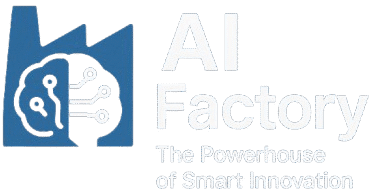Introduction
Artificial Intelligence (AI) is no longer the technology of tomorrow—it’s already reshaping our lives today. From how we work to how we connect, AI is weaving itself into the very fabric of human existence. One of the most significant, yet controversial, arenas it’s entering is mental health. The question we’re left grappling with in 2025 is this: Is AI helping or hurting our mental well-being?
This article takes a deep dive into the impact of AI on mental health in 2025, exploring how it’s changing therapy, diagnosis, emotional support, and daily mental wellness. We’ll weigh the benefits and drawbacks, look at real-world use cases, and determine whether AI is truly a friend or foe in the mental health space.
Background: AI and Mental Health—How We Got Here
The marriage between technology and mental health isn’t new. For years, people have used apps like Headspace or Calm for mindfulness, and chatbots like Woebot have offered low-level emotional support. But since 2023, we’ve seen exponential growth in AI’s capabilities thanks to models like GPT-4 and beyond.
Fast forward to 2025, and AI is now capable of:
- Providing 24/7 conversational therapy simulations
- Detecting signs of depression or anxiety through voice tone, word choice, and facial expressions
- Delivering cognitive behavioral therapy (CBT) techniques via personalized algorithms
- Working alongside or even replacing human therapists in certain settings
With this backdrop, let’s explore how this is playing out in real life.
Detailed Comparison: Human Therapists vs AI Therapy
| Aspect | Human Therapist | AI-Powered Mental Health Tool |
|---|---|---|
| Empathy & Human Connection | Genuine emotional understanding | Simulated empathy, lacks true emotional experience |
| Availability | Limited to appointment hours | 24/7 access anytime |
| Cost | Expensive ($50–$300/session) | Low cost or free |
| Consistency | Varies by therapist | Highly consistent responses |
| Confidentiality & Data Privacy | Protected by ethical laws | Dependent on app/company privacy policies |
Key Features and Benefits of AI in Mental Health
1. Instant Access and Scalability
Millions of people in remote areas or low-income communities now have access to mental health support. AI tools are bridging the gap between need and availability.
2. Personalized Wellness Plans
AI tracks behavior, mood patterns, and even voice modulation to create hyper-personalized mental wellness recommendations.
3. Early Detection and Prevention
AI can spot warning signs of conditions like depression, PTSD, or schizophrenia before they fully develop, allowing for early intervention.
4. Reduced Stigma
Talking to an AI removes fear of judgment, encouraging more people—especially teens and men—to seek help.
Pros and Cons of AI for Mental Health
Pros
- Affordable and widely accessible
- Always available—day or night
- Customizable and data-driven
- Non-judgmental environment
Cons
- Lacks true empathy and human intuition
- Potential for misdiagnosis or misinterpretation
- Privacy concerns and data misuse
- Overreliance on non-human interaction
Use Cases: Who Should Use AI Mental Health Tools?
- Students: Stress management during exams
- Remote workers: Coping with isolation
- Veterans: PTSD monitoring and support
- Busy professionals: Quick, daily check-ins
- People in underserved areas: Lack of access to human therapists
FAQs
1. Is AI therapy as effective as human therapy?
AI therapy can be effective for mild to moderate issues, but complex emotional trauma is better handled by human professionals.
2. Are AI mental health apps safe?
Many are safe, especially if they comply with data protection laws. Always read privacy policies before use.
3. Will AI replace therapists in the future?
Unlikely. AI is more likely to support or supplement human therapists, not fully replace them.
4. What’s the best AI mental health app in 2025?
Top contenders include Wysa, Woebot, and Mindsera. New entries like DeepCare AI are gaining traction for deeper emotional modeling.
5. How do AI tools personalize mental health support?
By analyzing your text, voice, app activity, and biometric data to provide customized responses and plans.
Conclusion: A Balanced Future
AI in mental health isn’t a black-or-white scenario—it’s shades of both. When used responsibly, it’s a powerful ally that increases access, affordability, and timeliness of care. But it must be balanced with human interaction, ethical oversight, and strong privacy protection.
Final Verdict: Helpful or Harmful?
Verdict: Largely Helpful—with Caveats.
AI is proving to be an invaluable tool for mental health support in 2025. It’s not perfect, and it shouldn’t be used as a standalone solution for serious conditions. But as a first step, a support mechanism, or a daily wellness assistant, it’s playing a pivotal role in reshaping how we care for our minds.
As with all tools, its impact depends on how we use it. With ethical guardrails, human oversight, and smart design, AI could be one of the most positive forces in modern mental health care.

